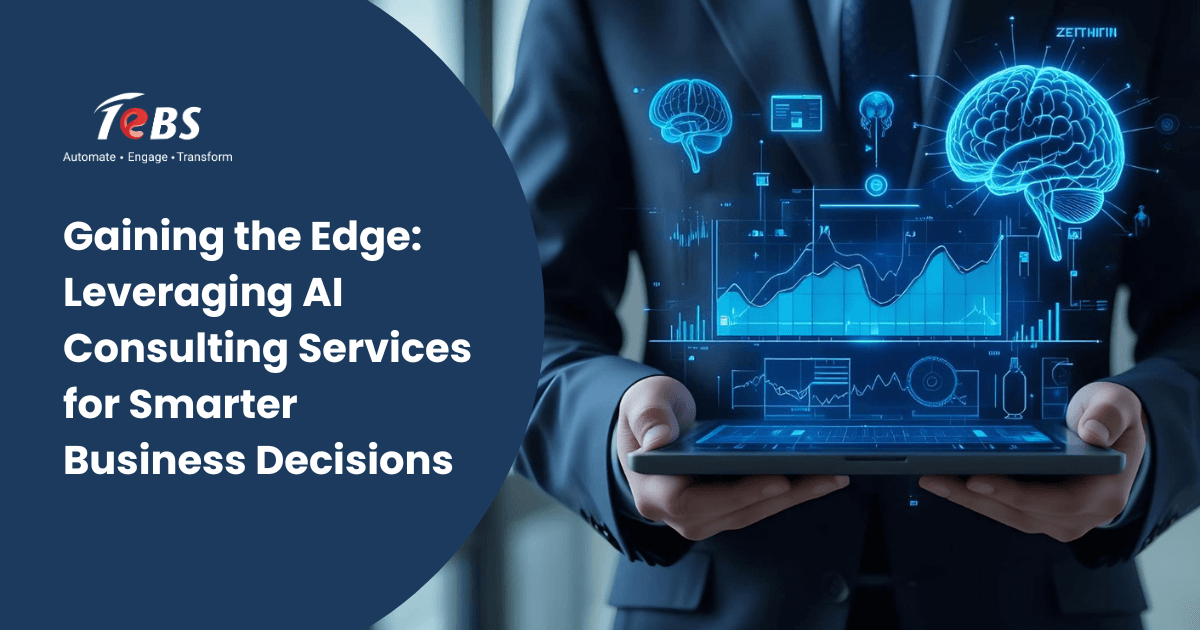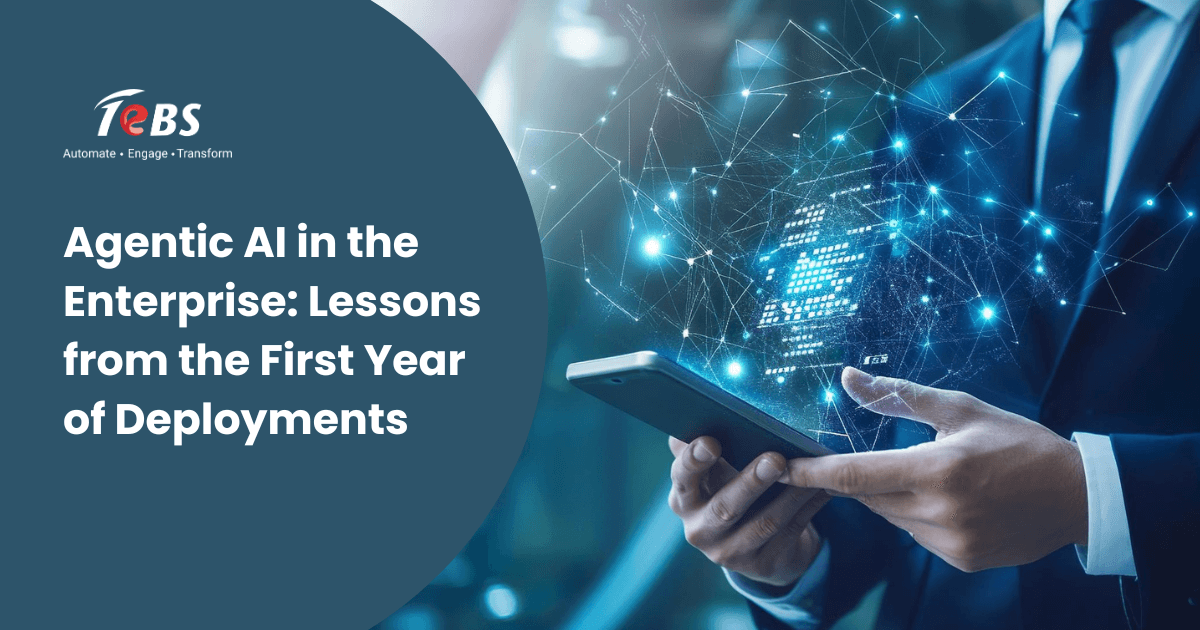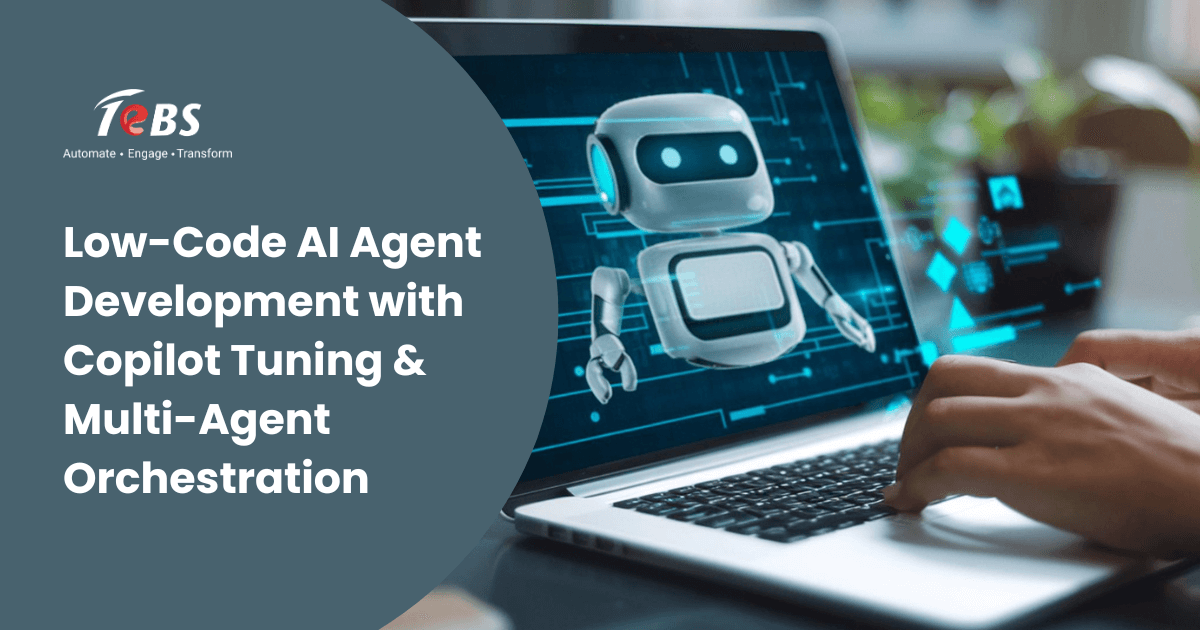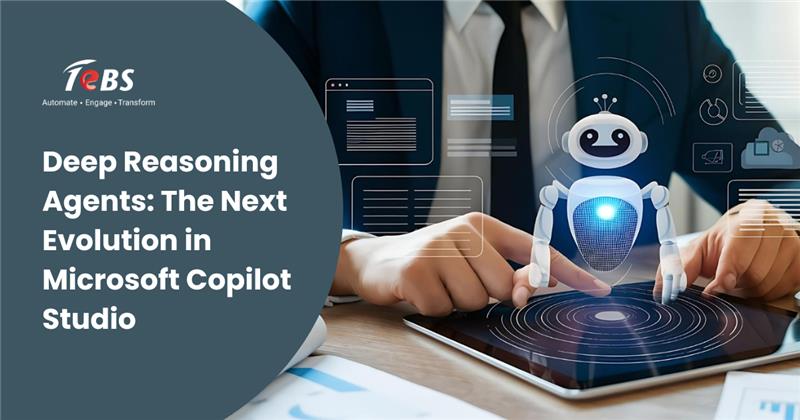Summary
Introduction: Importance of AI Consulting in Today’s Data-Driven Business Landscape
What is AI Consulting: Definition, Scope, and Core Services Offered by AI Consultants
Artificial intelligence consulting refers to specialized advisory and implementation services that help organizations integrate AI technologies into their business processes. The goal is to align AI capabilities with business objectives, ensuring measurable outcomes such as improved performance, cost optimization, and innovation.
The scope of AI consulting for business includes:
- AI strategy consulting: Defining AI roadmaps aligned with business goals.
- Machine learning consulting: Building predictive models to extract insights from large datasets.
- AI implementation services: Deploying AI models and automation systems into production environments.
- Data analytics and visualization: Turning raw data into actionable insights through advanced analytics.
- AI advisory services: Offering ongoing support, governance, and performance monitoring.
Through these services, consultants enable organizations to transform into intelligent enterprises powered by data, automation, and predictive capabilities.
Types of AI Consulting Services
1. Strategic Advisory Services
Strategic AI consulting for business focuses on helping organizations define their AI vision, assess readiness, and develop a roadmap for AI adoption. This involves evaluating data infrastructure, identifying high-impact use cases, and determining how AI aligns with corporate goals.2. AI Implementation Services
Implementation is where strategy turns into action. AI implementation services include developing AI and machine learning models, integrating them into enterprise systems, and ensuring seamless deployment. Consultants ensure that the solution is scalable, secure, and aligned with existing workflows.3. Data Analytics and Machine Learning Consulting
Machine learning consulting helps organizations leverage predictive analytics, pattern recognition, and advanced algorithms to uncover hidden insights. Consultants design and deploy data models that improve data-driven decision making, enabling businesses to anticipate trends and make proactive choices.4. Automation and AI-Powered Business Solutions
Through AI-powered automation, consultants streamline repetitive tasks, enhance accuracy, and improve efficiency across business operations. These intelligent business solutions cover robotic process automation (RPA), chatbots, intelligent workflows, and self-learning systems that continuously optimize performance.Benefits of AI Consulting for Businesses
- Improved Decision-Making: With AI-driven decision making, businesses can derive actionable insights from vast amounts of data, leading to more accurate and timely strategic choices.
- Operational Efficiency: Business AI solutions automate manual processes, enhance productivity, and reduce human error.
- Competitive Advantage: Companies adopting AI strategy consulting gain a head start by innovating faster and delivering personalized experiences.
- Cost Optimization: Predictive maintenance, process automation, and resource optimization result in significant cost savings.
- Scalable AI Adoption: Consultants ensure AI systems grow alongside the organization, adapting to evolving needs and data volumes.
These benefits collectively enable organizations to drive AI business transformation and achieve measurable business outcomes.
AI Consulting Process
The success of AI consulting services lies in following a structured process that ensures alignment between business needs and technology outcomes.1. Assessment and Discovery
Consultants begin by assessing the organization’s current infrastructure, data maturity, and readiness for AI adoption. This includes identifying challenges, defining goals, and pinpointing areas where AI can deliver the most impact.2. Strategy Design
Based on insights from the assessment phase, consultants design a comprehensive AI strategy consulting roadmap. This includes defining target use cases, selecting appropriate AI tools, and setting performance metrics.3. Implementation and Integration
The next step is the deployment of AI and machine learning consulting solutions. Consultants handle model development, system integration, and user training to ensure smooth adoption across the enterprise.4. Performance Monitoring and Optimization
After implementation, AI consultants continuously monitor performance metrics, refine algorithms, and ensure that AI models remain accurate and efficient. This ongoing process guarantees long-term value and adaptability.
For insights into workforce transformation, read more here: How AI Innovation Workshops by TeBS Are Shaping the Workforce
Key Industries Leveraging AI Consulting
AI consulting has transformative potential across multiple industries. Here’s how different sectors benefit:
- Finance: Fraud detection, credit scoring, risk modeling, and algorithmic trading.
- Healthcare: AI-powered diagnostics, patient data analytics, and predictive care management.
- Manufacturing: Predictive maintenance, demand forecasting, and quality control automation.
- Retail: Personalized marketing, inventory management, and customer behavior analytics.
- Logistics: Route optimization, warehouse automation, and real-time tracking.
Each of these sectors leverages AI consulting for business to enhance decision-making and operational resilience through intelligent business solutions.
Challenges in AI Adoption
- High Costs: Implementing AI solutions requires significant investment in infrastructure, tools, and talent.
- Skill Gaps: Many organizations lack the technical expertise needed to manage complex AI systems.
- Data Privacy and Compliance: Ensuring secure handling of sensitive data and adhering to evolving regulations can be challenging.
AI advisory services play a crucial role in addressing these challenges by providing technical guidance, compliance expertise, and strategic planning to ensure smooth and ethical AI adoption.
For deeper insights across industries, read more here: Top 5 Benefits of RPA in the Accounting and Finance Industry
Table: Comparison of Top AI-as-a-Service Vendors
| Vendor | Core Offerings | Strengths | Ideal For |
| Microsoft Azure AI | Cognitive services, ML models, data analytics | Integration with Microsoft ecosystem | Enterprises using Azure or Dynamics 365 |
| Google Cloud AI | Vertex AI, AutoML, data insights | Advanced ML and data processing | Data-heavy organizations |
| AWS AI Services | SageMaker, AI APIs, automation | Scalability and flexibility | Startups to large enterprises |
| IBM Watson AI | NLP, AI governance, automation tools | Strong AI ethics and explainability | Regulated industries |
| Oracle AI | Data-driven automation, analytics | Enterprise-grade integration | ERP and financial systems |
These enterprise AI solutions offer scalable tools that AI consultants can customize and deploy for different organizational needs.
For deeper insights, refer to Gartner’s Strategic Data and Analytics Predictions Through 2028 and Microsoft Cloud Adoption Framework for AI governance best practices.
Choosing the Right AI Consulting Partner
Selecting the right AI consulting services provider is essential for successful AI adoption. Businesses should evaluate partners based on:
- Expertise and Experience: Look for firms with proven experience in AI strategy consulting and successful industry-specific implementations.
- Technology Stack: Ensure the consultant has hands-on experience with leading AI platforms such as Azure AI, AWS, or Google Cloud.
- Customization Capability: The partner should tailor solutions to match business goals rather than offering one-size-fits-all systems.
- Data Security: Robust data privacy and compliance measures should be part of the service offering.
Choosing a partner like Total eBiz Solutions (TeBS) with deep experience in AI consulting for enterprises ensures seamless transformation and measurable ROI.
Future Trends in AI Consulting
- AI Democratization: Making AI tools accessible to non-technical users through low-code and no-code platforms.
- Predictive and Prescriptive Analytics: Moving from insights to foresight by enabling proactive business strategies.
- Integration of Generative AI: Leveraging generative models for content creation, design, and simulation.
- Ethical AI and Governance: Increasing focus on transparency, fairness, and accountability in AI systems.
- Edge AI and Automation: Deploying AI-powered automation closer to data sources for real-time decision-making.
Conclusion: How Businesses Can Start Leveraging AI Consulting Today
AI is no longer a futuristic concept—it’s a business imperative. To remain competitive, organizations must embrace AI consulting services that combine data intelligence, automation, and strategic insight. Partnering with experienced consultants allows businesses to unlock the full potential of enterprise AI solutions, optimize decision-making, and future-proof their operations.
Whether your goal is to automate processes, enhance analytics, or design a complete AI business transformation, the right consulting partner can accelerate your journey from strategy to execution.
Start your transformation today by connecting with our AI experts at [email protected].
Frequently Asked Questions (FAQs)
1. What does an AI consultant do?
An AI consultant helps organizations plan, design, and implement AI strategies, ensuring technology adoption aligns with business goals.
2. What are AI consulting services and how do they help businesses?
AI consulting services provide expert guidance and implementation support to integrate artificial intelligence into business operations, driving innovation and efficiency.
3. How can AI consulting improve decision-making in organizations?
By leveraging AI-driven decision making and predictive analytics, consultants help businesses make faster, data-backed strategic choices.
4. What is the difference between AI consulting and AI implementation services?
AI consulting focuses on strategy and planning, while AI implementation services handle the technical deployment and integration of AI systems.
5. Which industries benefit most from AI consulting?
Industries like finance, healthcare, manufacturing, retail, and logistics benefit significantly from business AI solutions and intelligent business solutions.
6. How do AI consulting services drive business transformation?
They align AI technologies with enterprise goals, enabling automation, improved analytics, and innovative decision-making capabilities.
7. How much do AI consulting services typically cost?
Costs vary based on project complexity, technology stack, and scope, but consultants often provide scalable models to fit different budgets.
8. Can AI consulting services help with data-driven strategy development?
Yes, consultants specialize in data-driven decision making, helping businesses use data as a strategic asset for growth.
9. What are the common challenges in AI adoption for businesses?
Challenges include high implementation costs, limited AI expertise, and ensuring data security and regulatory compliance.
10. How do AI consultants integrate machine learning into existing workflows?
Through machine learning consulting, experts develop and embed ML models within enterprise systems to enhance automation and intelligence in daily operations.





